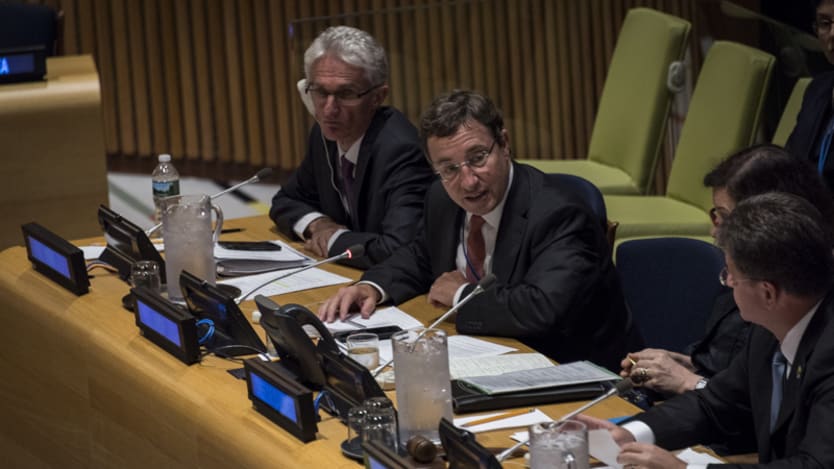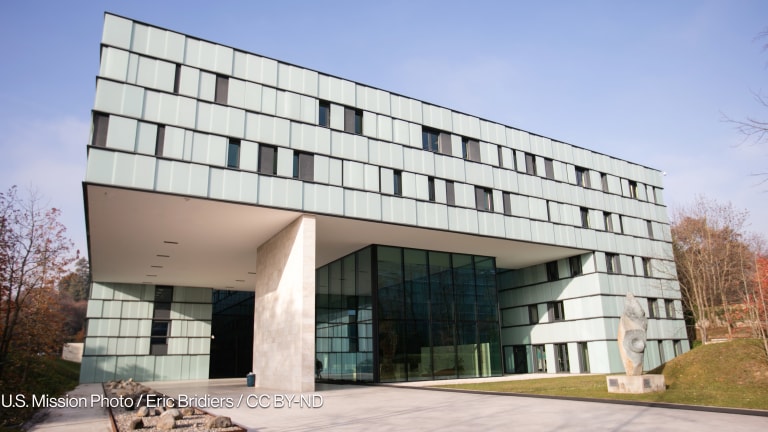
UNITED NATIONS — In back-to-back speeches at the United Nations Tuesday, the U.N. Development Program chief and the head of the U.N. Office for the Coordination of Humanitarian Affairs both emphasized the need for better alignment and strategic collaboration between the humanitarian and development communities. Their passionate words raise the question of whether the two new leaders can actually make progress on an oft-discussed issue.
“One of the big topics at the general assembly this time is the humanitarian, development join-up, and Achim [Steiner] and I are the personification of that join-up,” Mark Lowcock, the head of OCHA said. “We're collaborating on joint solutions and we're doing lots of events together. We have a big opportunity to handle these issues better in future than we have in the past, and we're going to seize the opportunity.”
New UNDP administrator looks to define agency's value, create fresh strategic vision
As the entirety of the United Nations eyes reforms, the U.N. agency with perhaps the broadest mandate is developing plans of its own. Devex spoke with United Nations Development Programme Administrator Achim Steiner about the agency's future and financing.
Sign up for our Global Goals Week daily briefings and visit our Global Goal Week site for full coverage
Steiner, the head of UNDP, said this conversation has gone on long enough — in fact he was part of a joint humanitarian, development nexus problem working group in one of his first jobs more than 30 years ago.
“I have long been a deep skeptic of the humanitarian, development schism,” he said. “I think it’s time we stopped theorizing about something that actually requires a lot of common sense. In the U.N. we have become ... far too confident in defining boundaries that to a real person, in a real setting are completely theoretical, and that is our commitment we have made to each other.”
Taking effective action can only be done by bringing in partners, including the private sector, which he said “can think much more easily about the connection between humanitarian and development issues.”
Both Steiner and Lowcock discussed what they have seen work in terms of private sector engagement and where the U.N. might play a role, particularly in building platforms, such as the Connecting Business Initiative launched in May 2016 at the World Humanitarian Summit.
The partnerships through the initiative have been successful in creating networks and platforms through which local actors — from governments to civil society and the private sector — are mapping their assets, developing disaster response plans and building relationships. Since the 2016 launch, CBI has created 13 active networks, more than half of which have already had to test their systems in response to some form of disaster. The idea behind the networks is both better coordination and improved preparedness.
Partnerships can also help create charters and principles that set standards and ensure accountability, Lowcock said, adding that they offer opportunities for both knowledge and data sharing as well.
“I think we're just in the foothills of what’s going to be a major evolution in our partnership and collaboration to do a much better job in future in providing assistance to those caught up in humanitarian crises," Lowcock said.
Devex is on the ground in New York at Global Goals Week, bringing you daily morning briefings with everything you need to know — whether you're here in person or following the events from afar. Sign up for our daily briefings.








